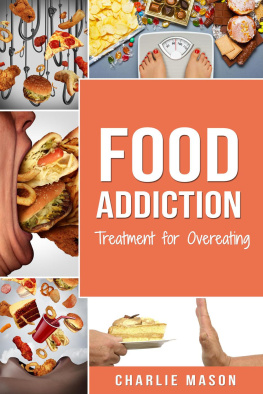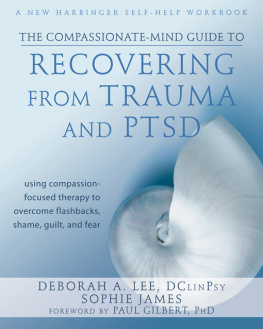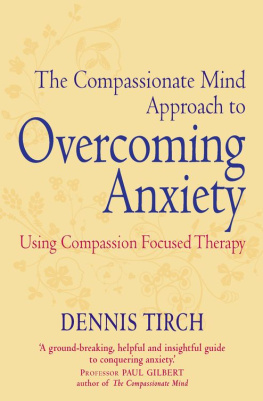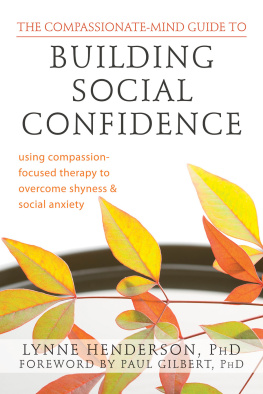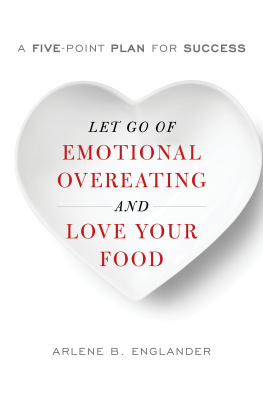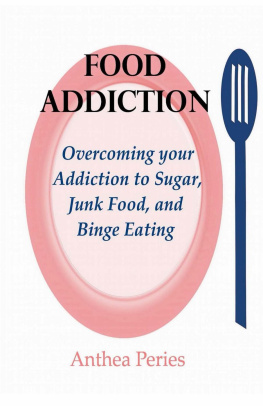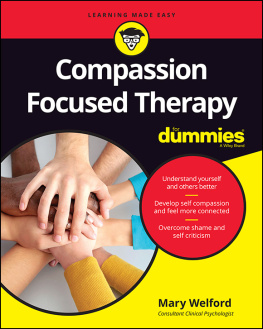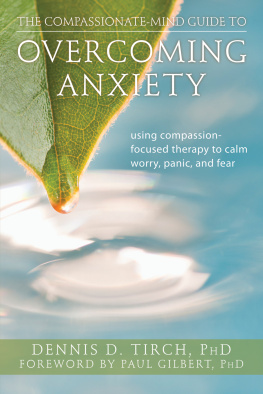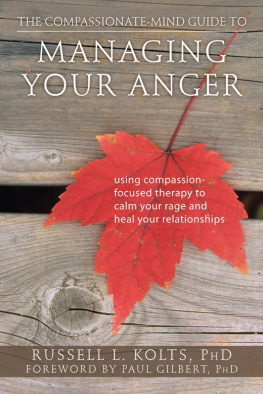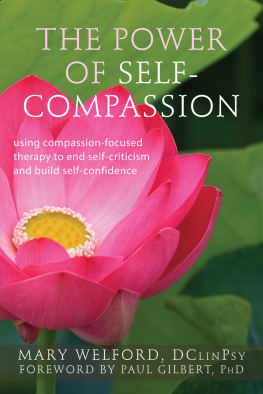We humans have always understood that compassion is very important for our well-being. Recent advances in scientific studies of compassion and kindness have greatly advanced our understanding of how compassionate qualities of the mind really do influence our brains, bodies and social relationships, as well as affecting our health and well-being. Yet despite this ancient wisdom and modern knowledge we live in an age that can make compassion for ourselves and others difficult. This is the world of the competitive edge, of achievement and desire, of comparison, dissatisfaction and criticism. Research has now revealed that such environments actually make us unhappier, and that mental ill-health is on the increase, especially in younger people. These issues are particularly pronounced in those of us who have difficulties with our eating habits and/or our weight. As Dr Goss helps us see, we are surrounded by a food industry that wants us to eat more and more, deliberately manipulating taste, texture and aesthetic appeal, and also by a culture that is highly critical of the overweight. Caught between the two, the more we criticize ourselves and feel down about our difficulties with eating, the more we eat. Learning compassion particularly for ourselves offers a path out of this cycle.
Another aspect of our society is a habit of attaching blame to people if they do not seem to come up to the mark or behave in prescribed ways. However, as Ken Goss makes clear, we can have significant difficulty with eating and weight through no fault of our own. We are a species on a long and continuing evolutionary journey. We didnt design our brains with their various capacities for emotions, like anxiety and anger, and their desires for sex or a lovely tasty meal this is just how our brains are. Nor did we design our bodies to seek out foods high in fat, sugar and calorie content thats just the way theyve evolved. We developed few natural regulators in our minds to limit our intake of such foods because we didnt need them on the savannas of prehistoric Africa, where these foods are very scarce. Today, though, it is tricky when you can go into a supermarket and find highly manufactured foods that can light up our brains of wanting and appetites like Christmas trees.
What are we to do, then? First, we can learn to pay attention to how our minds work and function, and become mindful and observant of the feelings that are associated with eating. Ken Goss shows in helpful detail how people have learned to pay attention to their feelings rather than simply reaching for the fridge.
If our relationship with ourselves is critical and harsh, then our inner worlds are not comfortable places to be in. Feeling ashamed, and being self-critical, self-condemning or even self-loathing can undermine our confidence, make us feel bad and tempt us to eat more! In contrast, self-compassion is a way of being with ourselves in all our emotions, uncomfortable as they may be, without self-condemning and with support and encouragement. Research shows that the more compassionate we are towards ourselves, the happier we are, and the more resilient we are when faced with difficult events in our lives. In addition, we are better able to reach out to others for help, and more compassionate with other people too.
Compassion is sometimes viewed as being a bit soft or weak, letting your guard down and not trying hard enough. Quite the contrary. Compassion requires us to be open to and tolerate our painful feelings, to face up to our own difficulties and those of others. Compassion is not turning away from difficulty or discomfort, or trying to get rid of it. It is not a soft option. It requires courage, honesty and a commitment to do what we can to alleviate unhappiness and pain of all kinds. It teaches us to do things to and for ourselves that help us to flourish and take care of ourselves not as a demand or requirement, but to enable us to live our lives more fully and contentedly.
In this book Ken Goss draws on his many years of experience heading the NHS eating disorders service in Coventry, UK. In particular he has developed compassion-focused therapy for people with eating disorders and disordered eating. Here he outlines a compassionate way of thinking about our evolved and complex relationships with food and provides a number of steps and exercises that enable you to develop a compassionate approach to those difficulties. You will learn about the nature of compassion and how to develop compassionate attention, compassionate thinking and compassionate behaviour. You will learn about the potential power of developing compassionate imagery and the compassionate sense of self, and how to use them when things get tough. Compassionate images can be either visual or aural (e.g. imagining a compassionate voice speaking to you when you need it), and can be especially useful in enabling us to get in touch with our internal compassionate feelings and desires.
The compassionate mind approach outlined here draws on many other well-developed approaches, including those of Eastern traditions such as Buddhism and Western therapeutic approaches such as the various cognitive behavioural therapies. Recognizing that one has a difficult, sometimes a lovehate relationship with food and eating, is a first step towards change; the next is to think about what would be helpful, followed by moving on with a programme of clear, practical steps towards change. This book provides such a programme. What a compassionate mind approach adds is that when you identify the steps, you begin to walk the path in a friendly, supportive, kind and encouraging way, recognizing that from time to time you will trip up, things will not go as you wish and you will have setbacks and relapses but that every time kindness, compassion and support will help you through. You will learn to develop an inner voice that conveys a sense of understanding, encouragement and warmth for you. If, by the end of this book, you have learned only how to speak to yourself kindly, you will have gained a valuable skill.
Many people suffer silently and secretly with eating and weight some ashamed of or angry with it, others sometimes fearful of it. Sadly, shame stops many of us from reaching out from help. But by opening your heart to compassion for your eating you can take the first steps towards dealing with it in a new way. Our compassionate wishes go with you on your journey.
Professor Paul Gilbert
August 2010
My first thanks go to all those clients who have been willing to share their experience of overeating. Their insights have been invaluable, while their courage and commitment to learning ways to deal with their experiences and feelings have inspired my work for over twenty years.
This book would never have been written without the support and encouragement of Professor Paul Gilbert. I have had the privilege of working with Paul for almost my entire professional career. His influence has been profound in both my personal and my professional life. He has pioneered the development of compassion-focused therapy, and his commitment to developing, researching and promoting this new approach has moved compassion into the mainstream of scientific thinking and clinical practice. I will always remain grateful for his help and for encouraging me to take responsibility for bringing the developments I have made in working with people with eating disorders to a wider audience. Without his faith in my ability to complete this work, and his compassionate encouragement throughout the process of writing, I would never have finished.
I would like to thank my family, Gill, Adam and Tasha, for their patience and encouragement in completing this book. Books take time to grow, and this one has taken several years! It is my greatest hope that they will always experience compassion from others and from themselves.


